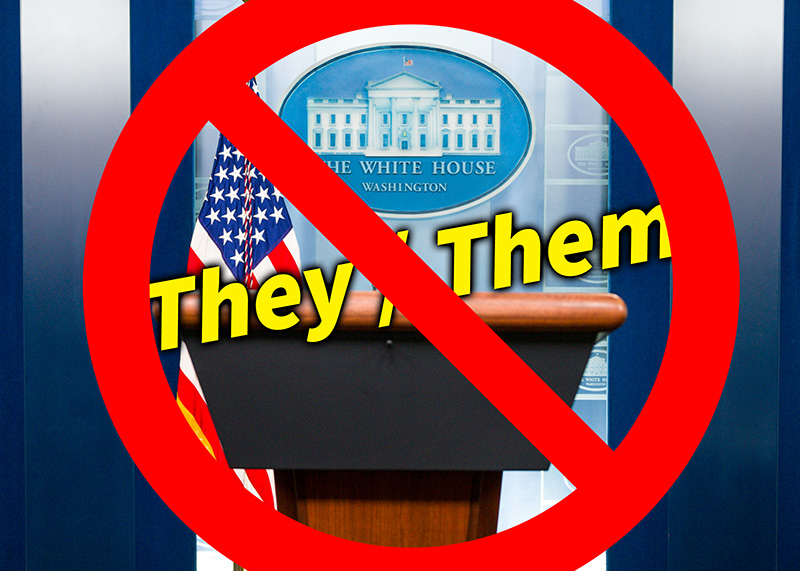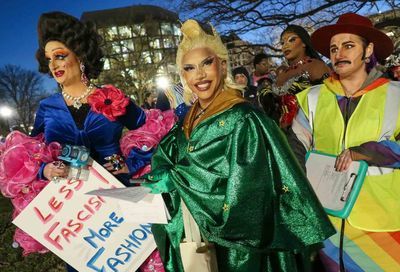Human Rights Advocates Blast Intersex Exceptions in Anti-Trans Laws
Bills seeking to bar gender-affirming care for trans youth often contain provisions allowing surgery on intersex newborns, critics say.

As a host of state legislatures in the United States continue their assault on the LGBTQ community — primarily targeting transgender youth — some advocates are criticizing the apparent hypocrisy of those laws as it applies to people who are born intersex.
According to a report from global civil rights organization Human Rights Watch, an intersex person is someone whose “innate bodily traits that do not fit conventional expectations of female or male bodies.” These people comprise about 1.7% of the global population.
Often times, when people are identified as intersex at birth, doctors may perform genital surgeries designed to mold their external reproductive organs in a way that adheres to more “traditional” sexual presentations. But some critics say these procedures are dangerous, irreversible, and medically unnecessary.
According to Human Rights Watch, intersex surgeries — often performed on infants and toddlers before they can consent to such procedures — may constitute human rights violations, according to the United Nations High Commissioner for Human Rights and the World Health Organization. Yet many states have been slow to implement bans on such surgeries — even as some more conservative states seek to ban any surgical procedures for transgender-identifying youth.
“State legislation in the U.S. that targets transgender youth is also harming intersex youth,” Erika Lorshbough, the executive director of the intersex advocacy group interACT, told Human Rights Watch. “When lawmakers propose and pass explicit exceptions for surgeons to operate on intersex bodies before the patients themselves can consent, it makes it clear that these bills are about erasing bodily diversity, not protecting anyone.”
In recent years, U.S. lawmakers have proposed or passed bills to bar transgender youth from accessing gender-affirming care. These laws threaten to either revoke the licenses of, or impose criminal charges against, doctors who prescribe transition-related treatments to minors. The discriminatory impact on the transgender community is obvious. But every bill introduced thus far also carves out exceptions that allow non-consensual “normalization” surgeries to be carried out on intersex youth.
According to an interactive map published by Human Rights Watch, in each the 25 states that have either passed or proposed laws restricting gender-affirming treatments or surgeries for transgender youth, the bills containing those bans have contained exceptions that permit surgeons to perform surgeries on intersex youth.
While there is an ever-advancing realization that many of these operations may be unnecessary — and, according to some critics, cruel — intersex advocacy groups have largely failed to gain traction in the United States. For example, in California, the sponsor of a bill to ban surgeries on intersex infants was forced to withdraw it after the measure encountered significant opposition from some in the medical community, especially associations representing specialists like gynecologists, andrologists, and urologists.
“Bundling the unconscionable assault on transgender children’s access to health care with provisions allowing for medically unnecessary surgeries on intersex kids is just two human rights violations for the price of one,” Kyle Knight, a senior researcher on health and LGBT rights at Human Rights Watch, said in the organization’s report. “Transgender and intersex children are harmed when politicians use children’s bodies to uphold regressive ideas about gender and sexuality rather than protect everyone’s fundamental rights to bodily autonomy.”
Support Metro Weekly’s Journalism
These are challenging times for news organizations. And yet it’s crucial we stay active and provide vital resources and information to both our local readers and the world. So won’t you please take a moment and consider supporting Metro Weekly with a membership? For as little as $5 a month, you can help ensure Metro Weekly magazine and MetroWeekly.com remain free, viable resources as we provide the best, most diverse, culturally-resonant LGBTQ coverage in both the D.C. region and around the world. Memberships come with exclusive perks and discounts, your own personal digital delivery of each week’s magazine (and an archive), access to our Member's Lounge when it launches this fall, and exclusive members-only items like Metro Weekly Membership Mugs and Tote Bags! Check out all our membership levels here and please join us today!






















You must be logged in to post a comment.